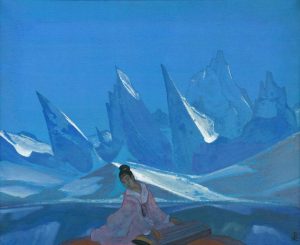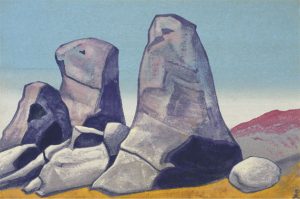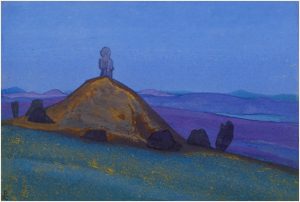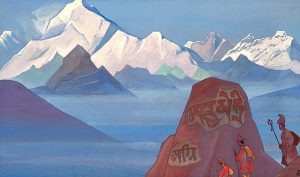Urusvati knows that the Great Pilgrim could direct people to the Highest just by His glance. His disciples were surprised when He wanted to labor with them in order to earn their daily bread. This principle was used by Our other Brothers, too. One of them, when He was an emperor, loved to say at the beginning of meals, “It seems that I have earned my bread.” Several of the most zealous disciples have fallen away because of the demands of continuous labor. You know one such example in a Northern country.
The Teacher used to say, “Friends, you find ample time for everything, but for the Highest you have only a few moments. If you had dedicated only the time you waste in the dining-hall to the Highest, you would have become teachers by now!” Thus, in practical terms, He taught the advantage of elevated thinking.
He also used to say, “When you offer your whole heart, you will feel the strong cord that binds you to the Great Heart.”
He also said, “Do not disturb others when you see them immersed in prayer. You can tear their hearts by thoughtless interference.”
He said also, “Be clean. Rinse your mouth after eating. Do not take intoxicants, for in the madness of intoxication man becomes lower than a beast.And He also taught, “Do not partake of flesh if you can avoid it.”
Thus one may find in the Apocrypha many hints about all aspects of life, and besides the already known Apocrypha, new chronicles may still be found. One cannot try to trace the chronological dates of these writings, for they were rewritten and translated many times.
Let us remember that these writings were taken at random from the many that were at hand. Thus, you should pay equal attention to all that has come down to us from the early centuries. Although the Apocrypha were written during the years immediately following the related events, fragments of the ancient writings are still being discovered.





